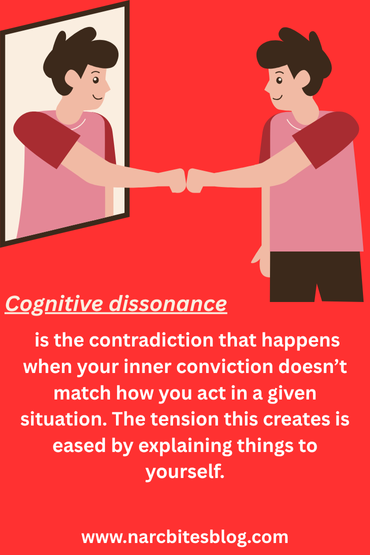Have you ever walked away from a conversation with a narcissist feeling disoriented—like the ground under your feet shifted, but you can’t explain how? You replay the exchange in your head, trying to pinpoint what went wrong. But instead of clarity, all you find is a growing sense of doubt.
That’s not a coincidence. That’s narcissistic distortion.
A conversation with a narcissist isn’t a simple back-and-forth—it’s a psychological maze, deliberately constructed to leave you confused, questioning, and ultimately compliant. And the more you try to “make sense” of their behavior, the deeper you sink into their reality.
So why do you feel crazy after these conversations? Let’s unpack the manipulation behind the madness.
Gaslighting: Rewriting Reality in Real Time
You recall something clearly—they tell you it didn’t happen. You express how something made you feel—they say you’re overreacting. You ask a simple question—they say you’re attacking them.
Gaslighting is a psychological manipulation tactic where the narcissist tries to distort your perception of reality. It’s not just lying—it’s rewriting shared reality until you question your own memory, judgment, and sanity.
They might say:
- “You’re remembering it wrong.”
- “That’s not what I meant.”
- “You always twist things.”
And over time, you start to wonder: Am I the problem?
But you’re not. You’re just being systematically trained to mistrust your instincts. The covert narcissist never reveals their true self — they always hide behind a mask.
Circular Conversation With a Narcissist Has No Exit
You bring up an issue. They deflect. You clarify. They interrupt. You try again. Suddenly, you’re apologizing and you don’t even know how you got there.
Narcissistic communication often follows a circular pattern—one where logic is optional, and the goal isn’t understanding, it’s exhaustion.
You might hear:
- “Why are you always so negative?”
- “This again?”
- “If you cared, you wouldn’t bring this up.”
The point isn’t to resolve the conflict. It’s to wear you down until you drop it. It’s like when a fisherman hooks a fish and wears it out, little by little, until he can guide it into the net or drag it onto the shore. And then it’s caught. That’s exactly what you are to them: the catch.
Word Salad: Confusion as Control
Sometimes they just talk. A lot. About everything and nothing. Long tangents. Irrelevant stories. Contradictory statements. Jargon. Accusations. Rapid subject changes.
This tactic—often called word salad—isn’t random. It’s a form of chaos communication designed to destabilize your focus and keep you overwhelmed.
They flood you with so much verbal noise that by the end of the conversation, you’ve forgotten why it started. And that’s exactly the point.
Shifting Blame and False Equivalence
You say, “It hurt me when you ignored me for three days.” They say, “Well, you were in a bad mood last month, remember that?”
What just happened? You were gaslit, deflected, and guilt-tripped in one sentence.
Narcissists rarely take responsibility. Instead, they shift the blame back to you using false equivalence—comparing your normal human behavior to their emotional abuse. They conflate reaction with provocation. You reacting to their cruelty becomes the “real problem” in a conversation with a narcissist.
Intensity Followed by Withdrawal
One moment, they’re pouring attention, admiration, or even affection on you. The next, they’re gone. Cold. Dismissive.
This push-pull dynamic is disorienting because it mimics addiction: a high followed by a crash. You’re constantly chasing the emotional validation they dangled in front of you before yanking it away. The inconsistency keeps you hooked—hoping that if you say or do the “right” thing, you’ll get back to the good times.
Spoiler: the good times were always conditional.
Tone Policing and Emotional Manipulation
You finally speak up. But instead of engaging with your words, they attack your tone.
“Calm down.” “Why are you so emotional?” “You need to stop being so sensitive.”
It’s not about what you said. It’s about controlling how you say it. Tone policing invalidates your message and shifts focus from their behavior to your delivery. It turns your justified reaction into the “problem.”
They may even provoke you deliberately just to get a reaction—then criticize you for reacting. It’s emotional baiting, followed by judgment.
Creating Cognitive Dissonance
They compliment you one day, then criticize you the next—for the same thing.
They say you’re amazing—but treat you like a burden. They say they can’t live without you, but they can’t live with you either because life with you is hard and it’s easier with someone else. They keep repeating, ‘I love you more than my own mother,’ yet they don’t want to live with you, they cheat and they lie. And you can’t understand how someone who cries in your arms one moment, saying how much they love you, can humiliate you the nextion it creates makes you more pliable. More eager to please. More likely to give them the benefit of the doubt.
You keep thinking: They didn’t mean it like that. They’re just stressed. They love me… right?
This internal tug-of-war can make you stay longer in toxic dynamics because you’re clinging to the version of them that shows up between the cruelty.
Emotional Boomerangs in a Conversation With a Narcissist
In a conversation with a narcissist, you express sadness, and somehow they’re the victim. You share fear, and they accuse you of manipulation. You cry, and they say you’re emotionally blackmailing them.
In narcissistic conversations, your feelings don’t land—they boomerang. You’re never allowed to just have an emotion. It’s always flipped, rejected, or used against you. This emotional invalidation creates a deep sense of loneliness. You’re there—but invisible. Speaking—but unheard.
Over time, you may stop expressing emotion altogether because you’ve learned it’s not safe.
The Invisible Rules Game
You broke a rule you didn’t know existed. You said something “wrong,” wore the “wrong” thing, or failed to anticipate a silent expectation.
Narcissists often hold you accountable to unwritten rules, standards they change as they go. This creates chronic anxiety. You walk on eggshells, trying to prevent the next blowup, but it’s impossible.
And when you do everything “right,” the rules still shift. That unpredictability is the point.
Post-Conversation Confusion After a Conversation With a Narcissist
Hours later, you’re still replaying the conversation.
You think:
- “Maybe I was too harsh.”
- “Maybe I misunderstood.”
- “Maybe I am too sensitive.”
This isn’t normal. This is a symptom.
Healthy conversations leave room for disagreement, repair, and connection. Narcissistic ones leave you disoriented, depleted, and doubting yourself. And when that pattern repeats often enough, you stop trusting your voice altogether.
Emotional Absorption and the Loss of Identity
In prolonged conversations with a narcissist, you might start to notice something more insidious: the absorption of your emotional world. Over time, your priorities, needs, and even your language start to reflect theirs. You speak their phrases. You think about how they’ll react to everything before you speak. You filter your choices through their moods.
This emotional enmeshment erodes your identity. You become less of a person in your own right, and more of an emotional extension of them.
The result? You don’t just feel crazy—you begin to forget who you were before the chaos began.
Projection in a Conversation With a Narcissist and Manufactured Guilt
They lie, but call you dishonest. They belittle you, but claim you’re the cruel one. They ignore your needs, but say you’re selfish. This is projection, one of the narcissist’s favorite defense mechanisms. And when paired with manufactured guilt, it becomes a weapon of control.
They’ll make you feel guilty for things they’ve done, emotions they’ve provoked, or boundaries you needed to set. You’ll find yourself apologizing for having needs, for speaking the truth, for simply existing in a way that challenges their narrative.
If talking to someone consistently makes you feel unstable, exhausted, or like the villain in your own story—it’s not a communication problem. It’s a control tactic.
Narcissists aren’t trying to understand you. They’re trying to manage your perception. Because as long as you’re confused, they’re in charge.
The moment you stop trying to prove your truth to them in a conversation with a narcissist and start listening to your own inner voice again, that’s the moment the fog begins to clear. You don’t have to win the argument. You just have to walk out of the maze.


